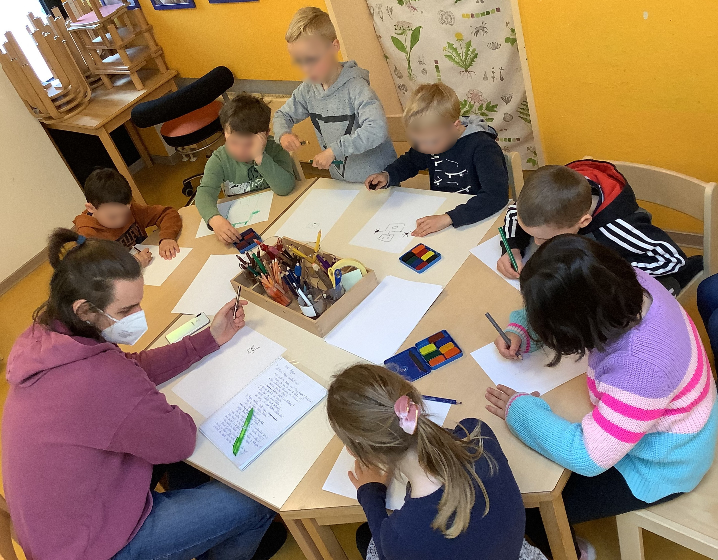Social robots in preschool settings
Advances in technology and innovation have made it increasingly possible for social robots to become integrated into everyday life. However, it is important to note that children perceive robots differently than adults. Therefore, in order to effectively utilize robots in preschool settings, it is essential to understand children’s perceptions of robots and the dynamics of child-robot interaction.
The aim of this work was to explore the perceptions of robots among preschool children, as well as the acceptance risks of kindergarten staff regarding the integration of robots in the preschool setting. Additionally, this research investigates the interaction between preschool children and a specific robot, Pepper, through a prototypical application.
To achieve these goals, a qualitative study was conducted, which included eight semi-structured interviews with nursery school staff, two group discussions with thirteen children between the ages of five and seven, and an evaluation of the child-robot interaction with Pepper and eleven children. Additionally, two semi-structured interviews were conducted with the teachers of the children who participated in the evaluation.
The group discussions with the children revealed, in line with general scientific consensus, that children tend towards animism. Furthermore, the research found discrepancies in preschool children’s technical understanding, and indications that the more pronounced a child’s technical understanding is, the tendency towards animism decreases. The evaluation of the application revealed that children are highly interested in physically active applications, but also enjoy educational and narrative applications. Furthermore, the study identified acceptance risks related to concerns about data protection, as well as fears of inappropriate robot behavior towards the children.



